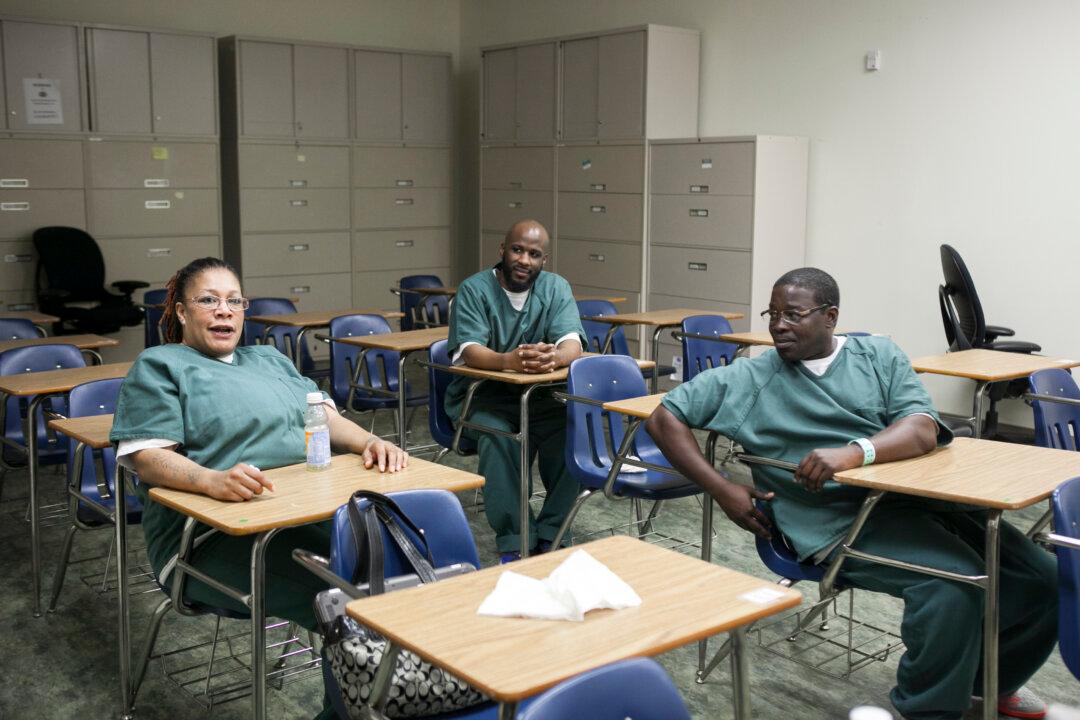NEW YORK—People in the audience stood up one by one, recounting stories of how they were fired from jobs after their employers found out about their criminal history, or how they still struggled with unemployment years after they had already done time in prison.
At a roundtable discussion held on Wednesday at the Community Services Society, a roomful of people gathered to hear about the Fair Chance Act, a bill in the City Council that would prohibit check boxes on job applications asking whether an individual has been convicted of a crime.
The bill would also ensure that private employers only inquire about a person’s criminal record after a job offer has been made. Any violation of the bill would result in a minimum $1,000 fine.
Just last month, New Jersey passed “ban the box” legislation aimed at discouraging public and private employers from discriminatory hiring practices and joining a group of 12 other states that have stopped the use of check boxes.
More than 70 cities and counties across the country have already enacted such legislation for public and/or private employers. New York City, has already enacted such legislation for public employers.
Studies have long confirmed that people with criminal records are much less likely to get hired than someone without a record, said Fred Patrick of the Vera Institute, a criminal justice policy research center.
Patrick is director of the Pathways from Prison to Postsecondary Education Project there, which seeks to increase access to higher education for prisoners and former inmates.
As the country reaches its highest rates of incarceration and more employers are making background checks a routine part of their hiring process, more people are getting screened out of jobs simply because they have a criminal record—regardless of whether the arrest or conviction relates to the work, according to Patrick.
“Now you have a scarlet letter on your forehead that marks you as not as likely to get gainful employment,” he said.
“Being black & having a felony = you don’t get hired.” VOCAL’s @carlstubbs supporting the #FairChanceAct at @CSSNYorg pic.twitter.com/hsWYBPfeVE
— VOCAL-NY (@VOCALNewYork) September 17, 2014
Furthermore, people of color are disproportionally affected because of the high incarceration rates among those communities—resulting in discrimination that further marginalizes them.
Nationwide, about 65 million Americans have a criminal record, according to the National Employment Law Project, a research and advocacy group.
Yet employment is one of the most important steps for an offender to get back on his feet. A job allows the person to remain crime-free, support his family, and become a tax-paying and productive member of society, Patrick said.
Current laws make it illegal for an employer to discriminate based upon someone’s criminal record, but the check box makes it easy for an employer to exclude someone’s application from being considered.
In New York City, check boxes are currently prohibited for city government jobs and contractors, and city agencies are not allowed to review an applicant’s criminal record until after the first interview.
Fair Chance Act
Councilman Jumaane Williams introduced the Fair Chance Act in April to extend the same practices for private sector employers. The bill now has 35 co-sponsors, a number large enough to override a veto should the mayor decide to. Williams said on Wednesday that there will be a hearing on the bill scheduled in the coming months.
.@JumaaneWilliams w us to talk #FairChanceAct. Notes need to reach out to businesses in our communities 4 support. pic.twitter.com/2xSZfyi9FD
— CSS New York (@CSSNYorg) September 17, 2014





